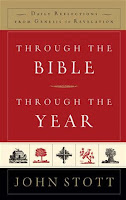The Psalms
The book of Psalms is the "prayer book" of the Bible. Its five sections correspond to the five books of Moses, otherwise known as the Torah. Every word of God uttered in the Torah has its corresponding answer in the scripted prayers of Israel. As we noted earlier (cf. Week 7, part 2), Torah is a personal word, a "yarah" - literally a "targeted word." And personal address merits a personal response. The Psalms are the personal response to God's personal address in Torah.
The nature of the Psalms as personal response suggests something important about the nature of God and the nature of humans. It suggest first, that God actually wants us to respond to him in ways that are consistent with his initiative and his nature. God comes to us personally and he desires that we respond personally, with all that we know of ourselves to all that we know of God. God relates according to his nature, which we also learned is personal. God has an investment in us and a desire for us. So God reveals his inner self to us. "YHWH" (translated "LORD") is God's personal name, revealed to Moses at the burning bush. To know God is to respond in kind - personally. The Psalms are inspired speech that guides us into the kind of response that God seeks to elicit from us. The personal nature of this conversation finds its ultimate fulfillment in Jesus - the great "I am" (a translation of "YHWH") who is both God's initiative to humans and response from a human in one person. The book of Psalms was Jesus' prayer book and his own words and prayers resonate with echoes from this book.
To keep one's focus on the personal nature of this kind of praying it is important to remember that the hebrew word "YHWH" is translated in english as "LORD" (in all capitals). It sounds like a title, but it is not. Wife is a title; Elizabeth is a personal name. YHWH is God's personal name. And its utterance should evoke memories of God's self-revelation: the encounter Moses has with God in Exodus 3 as well as the patriarchal stories, where God is revealed to them even when they do not know the full import of this name. (All personal knowledge is achieved over time through many interactions, for persons are complex). The Psalms preserve the interior experience of interacting with God's personal nature, as believers respond to that revelation with a corresponding self-revelation. This is important to remember because the Psalms are not really "model" prayers as much as they are "accurate" prayers. That is, they do not show praying as it was really meant to be. We have to wait for Jesus to see that (Father forgive them for they know not what they do.." is a model prayer). But by teaching us to pray truthfully and honestly in all of our grief, pain, heartache, hope and praise, they prepare for the praying that Jesus' himself instructs.
As a good illustration of "accurate praying" versus "model praying" we should look to Psalm 137, what some consider to be the most offensive prayer in the Bible. Given the distinctions I have just made, I believe it is actually one of the most pastorally instructive prayers in the Bible. We will look at that in more detail later in the week.

No comments:
Post a Comment